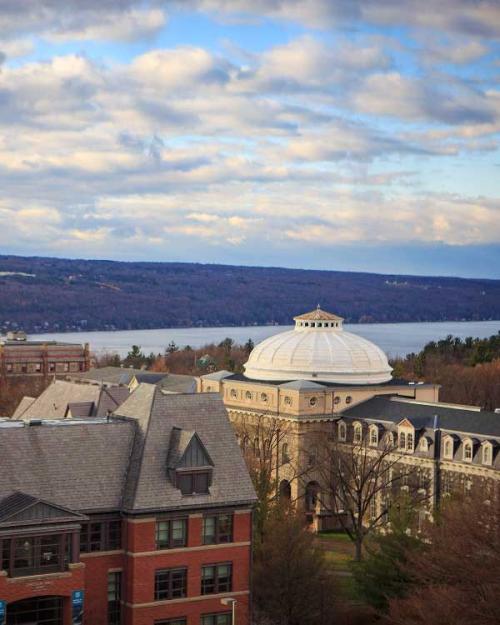Seven Cornell faculty members have been elected fellows of the American Association for the Advancement of Science (AAAS), the world’s largest general scientific society.
The association elected 564 new fellows in 2021, honoring their efforts to advance research and its applications in scientifically or socially distinguished ways. New fellows will be presented with an official certificate and a gold and blue (representing science and engineering, respectively) rosette pin.
The AAAS Annual Meeting, scheduled for Feb. 19, will be a virtual event again this year due to the pandemic. The association is exploring the possibility of a gathering later this year to honor this year’s fellows.
Cornell’s 2021 AAAS fellows:
Claire Cardie, professor of computer science and of information science in the Cornell Ann S. Bowers College of Computing and Information Science, was honored for her leadership in the use of statistical methods in natural language processing, specifically for reference resolution, information extraction and subjectivity classification. Her research objective is to develop algorithms and systems that will vastly improve a user’s ability to find, absorb and extract information from online text.
Paula Cohen, professor of genetics in the Department of Biomedical Sciences, in the College of Veterinary Medicine, was honored for distinguished contributions to the fields of meiosis (the formation of egg and sperm cells) and germ cell development, by promoting use of mouse and other models to understand meiotic recombination and the etiology of human aneuploidy. Her lab focuses on the regulation of meiosis in mammals, with special emphasis on how meiotic recombination is controlled, and how to leverage this information for the development of novel contraceptive agents.
Jun “Kelly” Liu, Ph.D. ’96, professor of molecular biology and genetics in the College of Arts and Sciences, was honored for distinguished contributions to the field of developmental biology, particularly using the nematode worm, C. elegans, to elucidate components of the bone morphogenetic protein signaling pathway. Her research is aimed at furthering understanding of developmental regulatory mechanisms and stem cell biology.
Prabhu Pingali, professor in the Charles H. Dyson School of Applied Economics and Management, was honored for distinguished contributions to the field of agricultural and applied economics, particularly for his work on agricultural development and food systems improvements. Pingali has joint appointments in the Division of Nutritional Sciences and the Department of Global Development, and is founding director of the Tata-Cornell Institute for Agriculture and Nutrition.
Chris Schaffer, professor in the Meinig School of Biomedical Engineering, in the College of Engineering (ENG), was honored for distinguished contributions to the development of new optical techniques for biomedical research, particularly using these tools to study cellular interactions and dynamics in the central nervous system. His lab’s current work includes a focus is the role of brain blood flow disruptions in the development of Alzheimer’s disease.
Huili (Grace) Xing, the William L. Quackenbush Professor of Engineering, in the departments of Electrical and Computer Engineering, and Materials Science and Engineering (ENG), was honored for distinguished contributions to the field of semiconductors and devices, particularly for polar wide bandgap semiconductors, 2D semiconductors, layered crystals, innovative doping and contacts in these materials. Her lab has four main focuses: III-V nitride materials and devices; oxide materials and devices; low-dimensional and quantum materials; and logic and memory materials and devices.
J.C. Séamus Davis, the James Gilbert White Distinguished Professor Emeritus in the Department of Physics (A&S), was honored for groundbreaking contributions to experimental low-temperature and condensed matter physics, particularly for quantum interference of superfluid helium-3, the invention of low temperature spectroscopic STM imaging, and studies of cuprate superconductivity. Since 2019, Davis has been professor of quantum physics at University College Cork, in Ireland, and professor of physics at Oxford University, U.K., in addition to his Cornell appointment.




